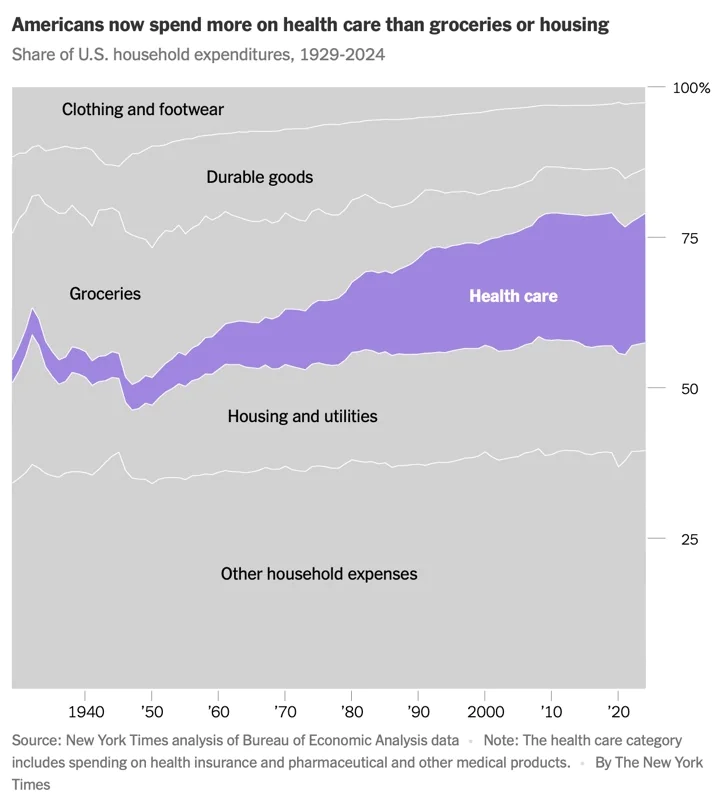Are Americans Really Spending More on Healthcare Than Housing?
For decades, housing has been viewed as the largest line item in the average American household budget. But recent data suggests that healthcare costs may have quietly overtaken it.

For decades, housing has been viewed as the largest line item in the average American household budget. But recent data suggests that healthcare costs may have quietly overtaken it. While grocery prices and dining bills have become the new headline concern, medical expenses—especially insurance premiums, deductibles, and out-of-pocket costs—are consuming an ever-larger share of family income. Much of this burden remains hidden because employers cover part of the insurance bill, masking the true scale of healthcare spending. When you factor in taxes and lost wages tied to healthcare costs, the system begins to look even more expensive than your mortgage or rent. The uncomfortable truth: for many Americans, healthcare—not housing—is the real budget killer.
(Although employers seem to cover less and less every year… Employers love Health Savings Accounts (HSAs) as it allows them to justify pushing lower-cost high-deductible health plans (HDHPs) wherever possible. If you are a family with a kid with ongoing medical needs, HSA+HDHP does not work out to be a good deal.)
The NYTimes article How Health Care Remade the U.S. Economy (gift) shows us how this came to be over time. Healthcare costs include insurance premiums as well as drugs and other medical products.
As someone who has been thinking about early retirement since they were 25 years old, I am well aware that health insurance premiums for our family of 5 is roughly $25,000 a year. I’m not even counting our actual healthcare expenses like co-payments and deductibles. Healthcare has always been a huge expense to offset with investment income.
Some people try to keep their modified adjusted gross income low and use ACA subsidies, check out this KFF ACA calculator to estimate your numbers. Note that the ACA income “cliff” is set to return in 2026, meaning household incomes exceeding 400% of the Federal Poverty Level (FPL) will not be eligible for any ACA premium subsidies.
Share
What was your reaction?
 Like
0
Like
0
 Dislike
0
Dislike
0
 Love
0
Love
0
 Funny
0
Funny
0
 Angry
0
Angry
0
 Sad
0
Sad
0
 Wow
0
Wow
0













